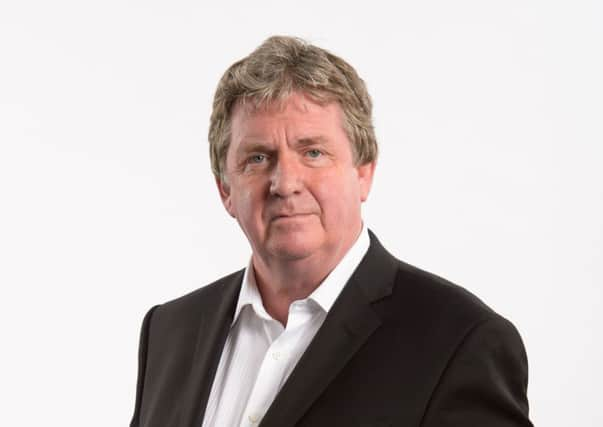Comment: Andy Haldane out on a limb with rate cut


want to hold fire for now, Haldane actually thinks a further cut from already historic lows of 0.5 per cent may be what the doctor ordered.
Up to a point, his reasoning is not dissimilar from the US Federal Reserve, which this week decided to hang fire on any interest rate rise across the Atlantic against a backdrop of volatility in China and emerging markets and low American inflation.
Advertisement
Hide AdAdvertisement
Hide AdThe difference is that while the transatlantic policymaking consensus now seems to be to hold off on a rate rise until macro conditions calm down, Haldane wants to go a step further and protect the UK recovery with a quarter-point cut.
I don’t think it will fly, and that Haldane’s latest speech on the issue will only serve to put some polish on the escutcheon of his arch-dove credentials on the MPC.
On balance, the Fed’s decision under its chair Janet Yellen to hold US interest rates where they are sounds more credible than Haldane’s suggestion that a reduction may become necessary over here.
The Fed stance makes allowance for the storm clouds coming from China, emerging markets and the resultant financial market volatility, while counterbalancing that with assessment of when rates need to rise in the US economic recovery arc.
It is a trade‑off between positive domestic data in the US and negative exogenous factors, most notably the Chinese slowdown.
The compromise, and it looks well‑judged is delay a rate rise, but not diverge from the general direction of travel that rates at some stage need to rise this far into the American recovery.
By contrast, a rate cut in Britain would be to swing the pendulum too far to monetary easing, even given the new headwinds from elsewhere in the world.
In addition, a cut would be a further slap for British savers who have borne the brunt through low interest on their savings of bailing Britain out of its debt and weakened state post the financial crisis.
Advertisement
Hide AdAdvertisement
Hide AdIn short, Haldane’s implied medicine would be a bridge too far.
Britons escape rain-hit late summer
THOMAS Cook’s trading update next week looks set to prove the maxim that holidaymakers are often remarkably resilient in being able to shrug off negative factors in their pursuit of that welcome break for the border.
The holiday business warned last July that it was likely to take a near‑£40 million earnings hit from the combination of the terrorist attack in Tunisia, the Greek debt crisis including the limits imposed on what could be withdrawn daily from Greek ATMs, and the weakening of the euro.
Since then, the Mediterranean migrant crisis has deepened and assumed virtually 24-7 media coverage, which one might have thought would have added to the holiday industry’s woes.
But a fair amount of evidence shows that Britons have placed more weight on the wet August and been booking up for holidays abroad to cheer themselves up.
The Ryanair and EasyJet airlines have both said they saw an uplift in passengers last month as holidaymakers voted with their flip-flops. Thomas Cook has probably caught a bit of the sunshine itself.